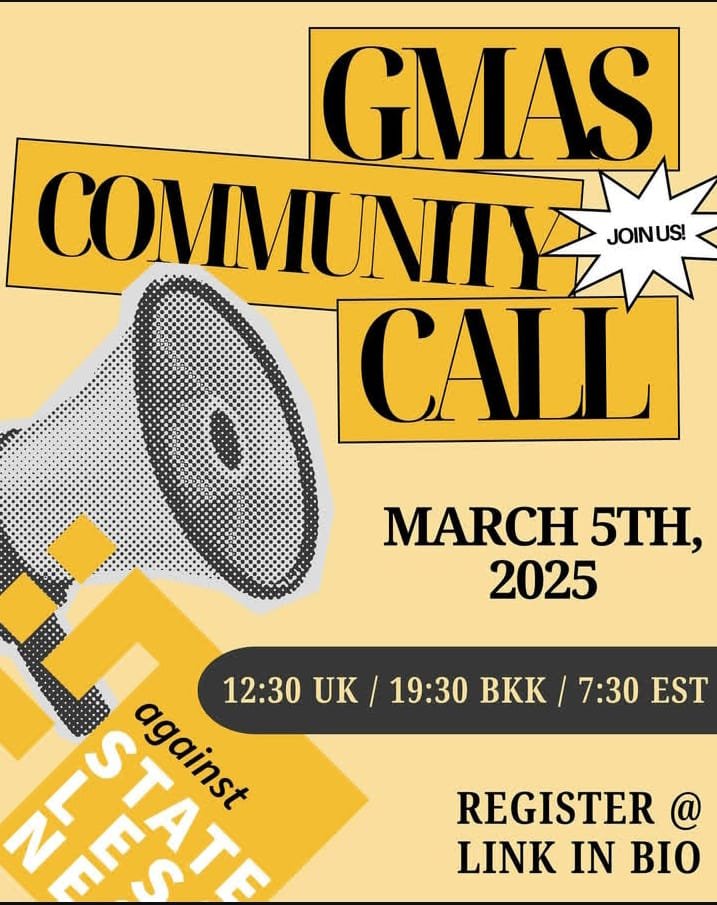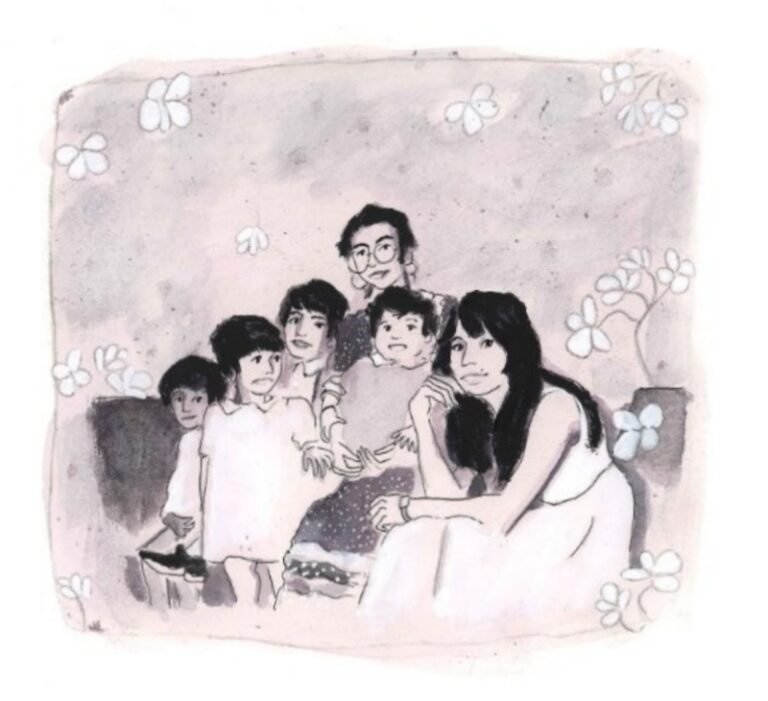Beyond Borders: Powerful Reflection from our March 2025 Community Call.
“When a country calls one their own and another not. Leaving the other to belong to none at all. No place to land, nowhere to go. What makes them, them? And us, us?"
— Patricia Low
Community call promotional flyer
Community calls are far more than just scheduled discussions; they are spaces of profound connection, where voices that are often silenced or overlooks come together to share their stories, reflect on their journeys, and be recognized. GMAS’ March 2025 Community Call was a powerful testament to this, in which it brought together stateless individuals, advocates, and allies in a conversation that transcended borders and languages. In a world where statelessness too often results in marginalisation, this gathering stood as a bold act of recognition. It was a space where those affected could speak, be heard, and engage with one another in meaningful ways.
The event was designed in a way that fostered an inclusive and diverse discussion. The agenda featured a rich mix of formats, including discussions, artistic expression, and community-led storytelling, to thoughtfully represent the different dimensions of statelessness. The structure was crafted to honour the diverse ways in which people express themselves. For some, policy discussions and legal analysis offer clarity; for others, art, poetry, photography, and personal narratives offer an essential lens through which complex realities are made tangible. Each segment, whether through spoken word, video messages, or expert insights, was an opportunity to highlight that statelessness is not merely a legal issue but a deeply human crisis, touching lives in profound and personal ways.
“As a Communications Lead, I understand the power of storytelling, not just through facts and data, but through the lived experiences of individuals and communities. Statelessness, though often sidelined, becomes palpable when expressed through art, testimony, and candid dialogue. This Community Call ensured that every voice, particularly those from stateless communities, found a space to be heard.”
The session began with an acknowledgment of the broader context in which the conversation was unfolding. Statelessness does not exist in a vacuum—it is a product of historical injustices, political exclusion, and systemic discrimination. A moment of reflection grounded the discussion in the lived realities of those affected, setting the stage for solidarity and shared purpose.
Art and storytelling were at the heart of our agenda, offering a deeply personal lens through which to understand the issue. Patricia Low’s poetry reading, rich with resilience, was more than just a reflect. It was a powerful assertion of existence and strength. Zahra Marwan’s illustrations and Mohammed Salim Khan’s photography brought statelessness to life visually, transforming abstract legal struggles into tangible, emotional stories that spoke directly to the heart.
Illustration by Zahra Marwan
Patricia low reading her poem
Video messages from stateless communities around the world, spanning from the Dominican Republic to Kenya, Lebanon to Pakistan, brought a sharper focus to the issue. Through their firsthand accounts, they spoke of the bureaucratic obstacles that denied them basic rights and shared the remarkable resilience they continue to demonstrate in the face of exclusion. These voices underscored that statelessness is not a singular experience, but a global issue that manifests in varied ways across different regions. Video messages allowed affected communities to speak directly for themselves, while the poetry and art brought an emotional depth that statistics alone could never convey.
A panel discussion further enriched the conversation, bringing together experts from UNHCR, global advocacy networks, and youth movements. Each speaker approached statelessness from a different perspective, some focused on legal frameworks, others on grassroots organizing, and some on funding and resource allocation. The wide-ranging discussion reinforced the critical idea that while laws and policies must evolve, true transformation also requires mobilization, creative storytelling, and sustained advocacy.
Joshua Castellino’s keynote intervention tied these perspectives together with a broader analysis of the global state of statelessness. He spoke of emerging challenges, shifting legal trends, and the importance of collective action. His words served as both a call for greater awareness and a call to action, reminding all attendees that the Movement Against Statelessness is not just about documentation, but about ensuring dignity, rights, and justice.
In short, the Community Call reinforced a vital lesson in communication: representation matters. Giving the stateless the space to speak for themselves, through their own words and creative expressions, is fundamental to building awareness and fostering solidarity.
As the event concluded, the feedback and positive comments from participants underscored the value of such events. Some spoke of deep connections they made through shared experiences, others of a renewed sense of purpose and resolve. Though the event itself may have ended, but the learnings and commitment to change will undoubtedly continue.
In a world that often marginalizes the stateless, this Community Call served as a powerful reminder: while statelessness may deny people a nationality, it cannot erase their existence. At GMAS, we remain committed to providing a safe space for these voices, amplifying their experiences and building solidarity for those who too often feel alone. Stay tuned for our next community call, and stay connected through our social channels to be part of this transformative journey.







